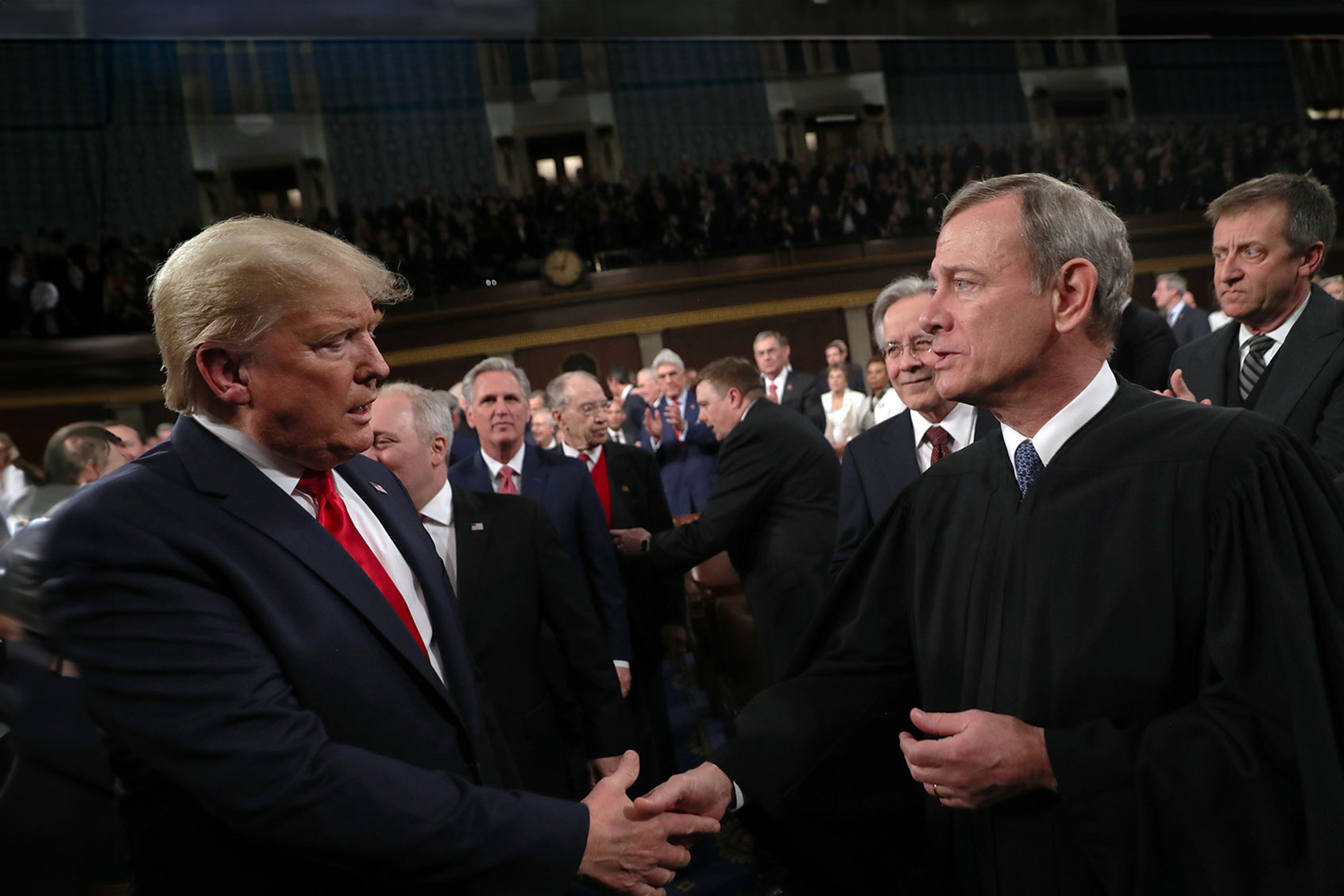The role of Chief Justice John Roberts in shaping the current political landscape has come under intense scrutiny, particularly regarding his relationship with former President Donald Trump. In her new book, Without Precedent: How Chief Justice Roberts and His Accomplices Rewrote the Constitution and Dismantled Our Rights, legal scholar Lisa Graves argues that Roberts has significantly undermined American democracy in favor of Trump’s authoritarian agenda. This perspective sheds light on how the Supreme Court has shifted under Roberts’ leadership, raising concerns about the institution’s integrity.
Graves highlights the concept of a “leader-follower effect,” where Trump’s actions have influenced broader societal behaviors. She asserts that Roberts, as the Chief Justice, has played a pivotal role in enabling Trumpism, which she characterizes as an authoritarian populist movement. During a recent interview, Graves expressed her outrage at the Supreme Court’s decisions under Roberts, stating, “Trump is building an authoritarian regime in America to empower and enrich himself further.”
One of the critical moments during Roberts’ nomination hearings was his affirmation that “no one is above the law.” According to Graves, this promise has been broken, particularly regarding Trump’s assertion of immunity from legal consequences. “The Supreme Court easily could have let the lower court ruling against Trump stand, but Roberts orchestrated a ruling that effectively pardoned Trump,” she noted. This ruling has been described as unprecedented and partisan, allowing Trump to avoid accountability for actions that may have violated the law.
Graves emphasizes that the Constitution provides no immunity for presidents from criminal prosecution. She argues that Roberts has assumed a role akin to a “kingmaker,” granting Trump significant powers that contravene established legal precedents. The implications of these actions extend beyond individual cases; they challenge the fundamental principles of the rule of law in the United States.
Supreme Court’s Shift to the Right
The transformation of the Supreme Court into a more conservative body is attributed to the influence of the right-wing legal movement, particularly the Federalist Society. Graves points out that the court’s current trajectory reflects a systematic effort to reshape its composition through the appointment of justices aligned with a specific political agenda. She notes that during George W. Bush’s presidency, Roberts was selected based on his perceived reliability in furthering this agenda.
Graves argues that Roberts’ leadership has not only facilitated the advancement of right-wing priorities but has also compromised the integrity of the judiciary. She states, “Roberts is using the judicial power not like a fair umpire but like a Republican operative.” This perception has been exacerbated by reports of personal corruption among individual justices, particularly involving Clarence Thomas, who has faced scrutiny for undisclosed gifts from billionaires.
The implications of this right-wing takeover are evident in landmark rulings that have altered the landscape of voting rights and campaign finance. Graves cites the 2013 Shelby County v. Holder decision, in which Roberts played a crucial role in dismantling key provisions of the Voting Rights Act. This ruling, which removed preclearance requirements for jurisdictions with a history of discrimination, has led to widespread concerns about voter suppression.
Calls for Accountability and Reform
Amid these challenges, Graves stresses the importance of accountability for the Supreme Court. She argues that public trust in the institution is at an all-time low, and citizens must demand reforms to restore integrity. “The American people understand that this court is out of control,” she asserts, highlighting the need for a collective response to rein in what she describes as an arrogant and hyperpartisan faction.
Despite the bleak outlook, Graves remains hopeful for the future. She draws inspiration from the civil rights movements of the past, noting that leaders faced immense challenges yet persevered. “We need to elect people who will hold this court accountable,” she emphasizes, advocating for a restoration of rights and a reevaluation of the court’s role in American democracy.
As discussions surrounding the Supreme Court’s authority continue, the actions of Chief Justice Roberts will remain a focal point in understanding the evolving relationship between the judiciary and the political landscape. The ongoing debates about accountability, voter rights, and the rule of law underscore the critical need for vigilance in protecting democratic principles in the United States.






